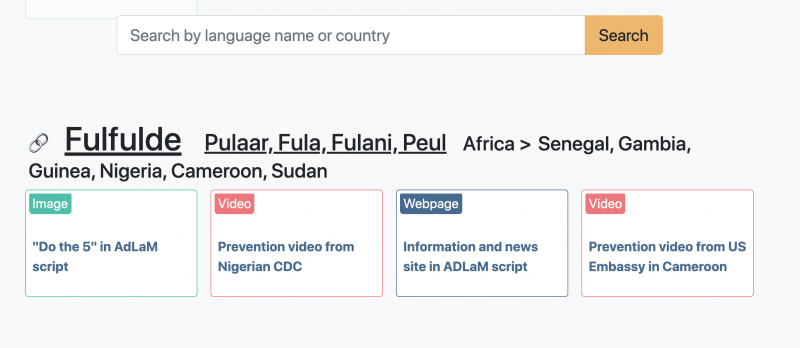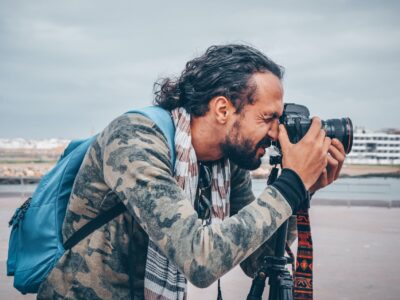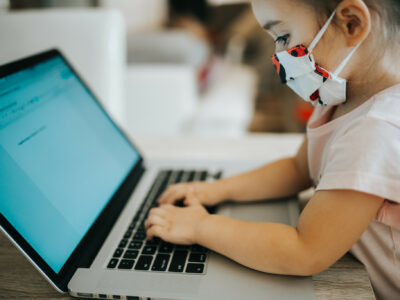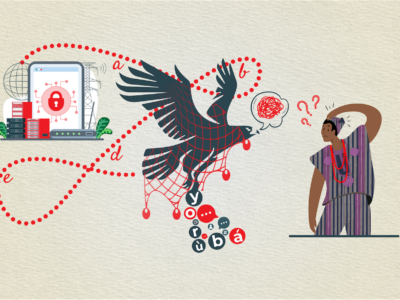
Screenshot of ELP's COVID-19 Information in Indigenous, Endangered, and Under-Resourced Languages
Rising Voices note: Our biweekly newsletter provides a summary of our recent blog posts about all aspects of digital inclusion including access and adoption of digital tools, as well as different ways and opportunities for communities to fully participate online. Read here for previous editions of this newsletter.
Hello readers, hope this newsletter finds you well and you all have been staying safe, following health advice made by trustworthy parties.
Many communities facing similar public health threats are lacking access to the much needed information because they primarily communicate in under-resourced languages. This is where the Endangered Languages Project (ELP) has been helping by assembling a repository of COVID-19-related multimedia information designed to fill this information gap.
This repository can be searched by country or language name and will be updated as resources become available. Examples of these resources include this children's book in the Dhuwaya language from Australia and this audio message in the Yucatec Maya language of Mexico and this video message in the Odia language of India.
If you’d like to contribute or if you somehow find information that needs to be corrected, please reach out to ELP and let them know!
MORE FROM THE RISING VOICES BLOG
Following our commemoration of the International Year of Indigenous Languages (#IYIL19), Rising Voices and our partners are continuing a series of rotating Twitter campaigns based off last year’s successful initiative. If you are curious about indigenous, minority, endangered, or under-resourced languages across the world plus how the internet and technology may play a role in their promotion and/or revitalization, please stay tuned! You can also read the profile posts as follows to learn more about our recent hosts, their work and visions for their languages.
@ActLenguas (Latin America)
- Jermani Ojeda Ludeña [es] on challenges that Quechua — an official yet still “oppressed language” in Peru — is currently facing as well as the efforts he himself and fellow activists have made in bringing visibility to their language for its preservation
- Alcides Javier Torres Gutt [es] on Guarani — a language indigenous to South America and spoken in several countries in the region, including Paraguay — and how he has been promoting the language in the digital world via localization of free software
@AsiaLangsOnline (Asia)
- Fikri Ansori on the Rejang language (indigenous to Bengkulu and the neighboring region of Indonesia), how he has found ways back to his roots, as well as how he aspires to preserve this heritage for future generations with the help of the Internet
- Sok Socheat on the current status of Bunong and how he, along with the organization he’s associated with, seeks to not only promote the language but to advance the rights of indigenous communities throughout Cambodia in various aspects
Along this line, two previous hosts as part of the #IdentityMatrix social media campaign shared with us the relationship between and digital rights and linguistic diversity is crucial for the cultivation of identity and the survival of cultures.
→ Making Swahili visible: Identity, language and the internet
→ A Yorùbá language activist strives for linguistic diversity in digital spaces
In addressing this current pandemic, we also wish to invite our readers to learn about:
→ Efforts made to support indigenous and/or marginalized communities by making critical health information available in their own languages via songs and video clips as well as
→ How mis- and disinformation in the digital space is especially devastating in the context of minority languages.
CALLS FOR PARTICIPATION
Working on an analytical piece concerning threats to digital rights in countries such as Lebanon, Liberia, Rwanda, Namibia, Sierra Leone, The Gambia, Senegal, and Democratic Republic of Congo? Pitch your story to Global Voices and receive $150 in compensation for your work! For further details and contact information, please see here.
Through the OpenGLAM initiative, Wikimedia Foundation and Creative Commons have worked with partners on Open Access for Cultural Heritage for years. Now, they want to hear from you about real experiences in the field, particularly from underrepresented communities. Your story could be worth $300 (details here)! Submissions will be reviewed on a rolling basis.
In search of innovative, quickly deployable solutions to the multifold needs of post-pandemic recovery in French Polynesia, La French Tech Polynésie has launched its second TECH4ISLANDS Awards back in May. If you are based in the region and wish to partake in the competition, please see here for more information. Application due: July 20, 2020
EVENTS & CONFERENCES
Ever wondered how fact-checking is done? This year, International Fact-Checking Network brought Global Fact 7 to you via the Internet. See the recordings of some of the 150+ speakers from over 40 countries who discussed the state and future of fact-checking!
RESEARCH
Have you participated in the celebration of #IYIL2019 (International Year of Indigenous Languages, 2019) and have been wondering about its turnout? The United Nations has prepared a summary report to give us an overview on what has been achieved through this global initiative. It’s available in six languages and can be viewed/downloaded here.
ADDITIONAL READINGS, LISTENINGS, and VIEWINGS
- For some students with learning disabilities, distance learning has been a disappointment via MinnPost
- Online learning poses accessibility burdens via the Charlatan
- Zoe Amar: Covid-19 – Charities must take action on the digital divide via Third Sector
- How Internet Access Can Preserve Native Cultures: A Virtual SXSW Panel as presented by Internet Society North America Bureau via YouTube
Subscribe to the Rising Voices Newsletter
Support our work
Since Rising Voices launched in 2007, we’ve supported nearly 100 underrepresented communities through training, mentoring, microgrants and connections with peer networks. Our support has helped these groups develop bottom-up approaches to using technology and the internet to meet their needs and enhance their lives.
Please consider making a donation to help us continue this work.



